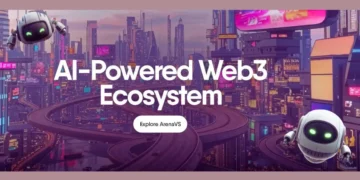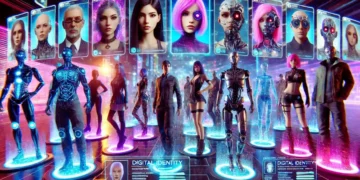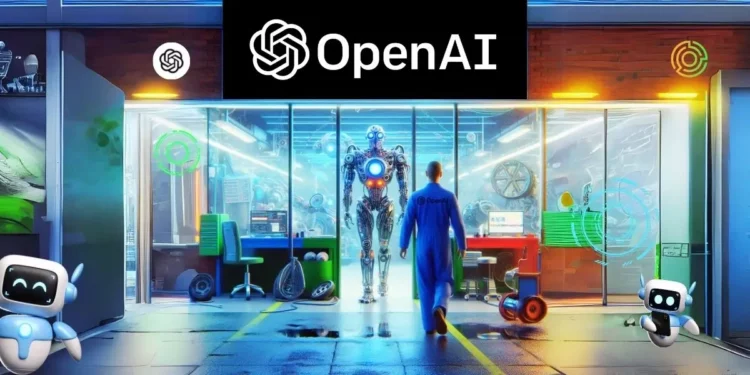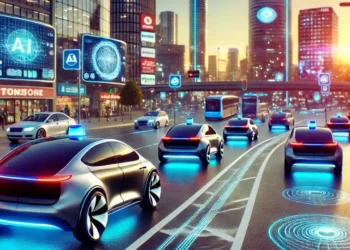Yesterday, GPT-4o was launched, and we can already start exploring what it can do and how it differs from GPT-4. This model has the potential to redefine how we interact with artificial intelligence, and I believe you’ll be amazed by its capabilities. So, sit back, relax, and let me tell you all about this innovation that’s making waves in the tech world.
GPT-4o: The Star of the Show
The most important update is the release of GPT-4o. This new large language model (LLM) offers intelligence at the level of GPT-4 with notable improvements in performance and multimodal capabilities. This means that now free users have access to advanced features that were previously reserved for ChatGPT Plus subscribers. Among them (I’ll discuss them in more detail later):
- Web browsing: Use ChatGPT Browse with Bing.
- Data analysis.
- Interaction with photos and documents.
- Access to custom GPTs and the GPT Store.
ChatGPT Plus subscribers still enjoy benefits such as five times more capacity and priority access to GPT-4o. However, free users will be able to experience these improvements, albeit with some usage limitations.
Say hello to GPT-4o, our new flagship model which can reason across audio, vision, and text in real time: https://t.co/MYHZB79UqN
Text and image input rolling out today in API and ChatGPT with voice and video in the coming weeks. pic.twitter.com/uuthKZyzYx
— OpenAI (@OpenAI) May 13, 2024
New Voice Mode
The new Voice Mode, powered by GPT-4o’s video and audio capabilities, allows for more natural conversations. Now you can interrupt the voice assistant, listen to responses in different tones, and even translate conversations in real time. This mode can also use the context of your surroundings to give more personalized answers. For example, if you ask about a building you’re looking at, the assistant can give you relevant information.
Live demo of GPT-4o voice variation pic.twitter.com/b7lLJkhBt1
— OpenAI (@OpenAI) May 13, 2024
Uploading Screenshots, Photos, and Documents
One of the most useful features is the ability to upload images and documents for detailed responses. You can upload PDFs like research articles or legal documents and ask the chatbot to summarize them or answer questions about the content. You can also use this feature to solve math problems on worksheets or identify plants.
Expanded Languages
With GPT-4o, ChatGPT now supports more than 50 languages, making it more accessible to a global audience. Additionally, this expansion enhances the chatbot’s translation capabilities, especially in the new Voice Mode.
New Browser and App Interface
The user interface of ChatGPT has been revamped to offer a friendlier and more conversational experience. Now, when you visit the page, you’ll see a new home screen and a new message design. Additionally, a new macOS app has been launched for ChatGPT Plus users, with a Windows version expected later this year.
Access to the GPT Store
GPTs are custom chatbots designed to perform specific tasks. The GPT Store, which replaces ChatGPT plugins, now has over three million GPTs available. This capability is valuable because it allows users to extend ChatGPT’s functionalities and integrate AI with some of their favorite applications, like Canva and Wolfram.
These updates represent a significant advancement in improving the free ChatGPT experience, bringing advanced AI capabilities to a wider audience, though it will take a few more days to see them.
What’s New with the GPT-4o API
We continue to talk about GPT-4o, but this time we discuss its API, which has equally exciting updates as the chatbot platform we’re used to.
One of the most striking updates of GPT-4o is its new pricing scheme. Imagine halving your costs while maintaining or even improving the quality of service. That’s exactly what GPT-4o offers: the prices for both input and output tokens are now 50% cheaper. This means you can double the amount of interactions for the same price or simply stretch your budget much further.
But GPT-4o is not only cheaper but also considerably faster, with latency that is twice as fast as its predecessor, GPT-4 Turbo. This translates to significant improvements for applications that depend on quick responses, such as customer support tools, educational applications, and real-time recommendation systems.
For developers handling large volumes of data or needing high response rates, the new API brings good news. GPT-4o will offer rate limits five times higher than GPT-4 Turbo, reaching up to 10 million tokens per minute. This is especially valuable for applications that need to scale to a large number of users without compromising performance.
Besides being faster and more economical, GPT-4o significantly improves vision capabilities and offers expanded support for languages other than English. These improvements open new possibilities for developing global and multicultural applications, as well as for projects integrating image and video analysis.
Perhaps the most exciting part is what’s to come: GPT-4o plans to integrate audio and video capabilities in the coming weeks. This functionality will initially launch to a small group of trusted partners, which clearly indicates we’re just at the beginning of what this technology can do.
For developers interested in exploring GPT-4o’s capabilities, OpenAI suggests starting in the Playground, which now supports vision capabilities, and reviewing the API documentation. There’s also an introductory cookbook on GPT-4o available, ideal for learning how to handle video content with the new API.
Unveiling the Incredible Capacities of GPT-4o
OpenAI has spared no effort in crafting GPT-4o, imbuing it with an array of groundbreaking features that set it apart from its predecessors. Let’s unravel the remarkable capabilities that make GPT-4o a true game-changer:
Omni-Modal Intelligence
GPT-4o transcends the limitations of mere text processing, embracing a multimodal approach that seamlessly integrates visual and auditory inputs. This enables a more natural and intuitive interaction, allowing users to communicate with the model through a combination of text, voice, and images.
Real-Time, Interactive Conversations
GPT-4o elevates the dialogue experience to new heights, enabling real-time, fluid conversations that mimic natural human interactions. Whether you’re seeking witty banter, assistance navigating the city streets, or guidance on a complex task, GPT-4o adapts its tone and maintains a coherent dialogue, making it a compelling companion.
Emotional Recognition and Guidance
GPT-4o goes beyond mere comprehension, demonstrating an uncanny ability to recognize and respond to human emotions. It can offer empathetic support, provide practical advice tailored to your emotional state, and even inject a touch of humor to lift your spirits.
Educational and Entertaining Prowess
GPT-4o’s versatility extends beyond personal interactions, making it a valuable tool for education and entertainment. From explaining complex mathematical concepts in a simplified manner to composing a heartfelt serenade about the wonders of potatoes, GPT-4o proves to be a multifaceted companion.
Contextual Awareness and Adaptability
A hallmark of GPT-4o’s intelligence lies in its ability to grasp the context of a situation and adapt its responses accordingly. Whether you’re in a bustling studio or a tranquil park, GPT-4o can decipher the environment and provide relevant, context-sensitive responses.
The World Reacts to GPT-4o: A Spectrum of Opinions
As you know, OpenAI has launched its new language model, GPT-4o, and reactions haven’t been slow to arrive. This model promises to be faster, cheaper, and emotionally intelligent, opening new possibilities in human-AI interaction. Let’s break down what this means and how it has been received so far.
As I have mentioned on several occasions, GPT-4o is OpenAI’s latest innovation in the field of large language models (LLM). This model not only processes text but also integrates visual and auditory capabilities, allowing for more natural and fluid interaction. The ability to detect and mimic human expressions, especially through audio, significantly differentiates it from its predecessors.
First Impressions
Initial reactions to GPT-4o’s launch have been mixed. Jim Fan, a researcher at Nvidia, highlighted that OpenAI now competes directly with Character AI due to its focus on more emotional artificial intelligence. On the other hand, Ethan Mollick from Wharton considers it a significant advance, emphasizing its potential impact.
Allie K. Miller, a startup advisor, is excited about the new ChatGPT desktop application for macOS. She describes this tool as revolutionary for productivity, imagining people working for hours with it without getting tired.
Not everyone has welcomed GPT-4o with open arms. James Vincent, a journalist and author, suggested that marketing it as a voice assistant was clever but didn’t necessarily indicate a real advancement in capabilities. According to him, voice doesn’t automatically imply an improvement in AI intelligence.
Chirag Dekate from Gartner expressed that the launch event was a bit disappointing, comparing it to Google’s Gemini demos seen months ago. Dekate mentioned that OpenAI might face challenges competing with tech giants like Google and Meta, who have more data and better infrastructure to train models.
Is GPT-4o AGI?
Some experts believe GPT-4o is approaching the dream of artificial general intelligence (AGI). Benjamin De Kraker, a developer, thinks GPT-4o is practically AGI due to its ability to listen, speak, see, and reason almost indistinguishably from an average human. Similarly, Siqi Chen was impressed with the model’s ability to render 3D objects from textual descriptions.
Favorable Opinions
Not all feedback has been critical. Greg Isenberg, CEO of Late Checkout, commented on the incredible speed of progress in artificial intelligence, while Min Choi, an AI educator, praised GPT-4o’s potential to completely change the game for virtual assistants.
Although GPT-4o is still in its early days and many of its capabilities aren’t available to the general public, it has already generated a variety of strong opinions. The promise of a faster, cheaper, and emotionally intelligent AI is here, and its long-term impact will be fascinating to watch.
The unveiling of GPT-4o has sent ripples through the tech community, eliciting a diverse range of reactions. While some hail it as a monumental leap forward in AI capabilities, others remain cautious, seeking more groundbreaking advancements. Let’s examine the spectrum of opinions surrounding this revolutionary tool:
Applause for OpenAI’s Breakthrough
Many experts applaud OpenAI for pushing the boundaries of human-machine interaction with GPT-4o. They highlight its ability to overcome barriers in communication and its potential to transform various industries.
Cautious Optimism and the Quest for More
While acknowledging GPT-4o’s impressive capabilities, some experts express a desire for even more revolutionary advancements. They urge further exploration of the model’s potential to solve complex problems and make a tangible impact on society.
Ethical Considerations and the Responsible Use of AI
As with any powerful technology, the ethical implications of GPT-4o must be carefully considered. Experts emphasize the need for responsible development and deployment, ensuring that the model is used for the betterment of humanity.
GPT-4o’s Impact on the Future of AI-Powered Communication
The introduction of GPT-4o marks a significant milestone in the evolution of AI-powered communication. Its ability to engage in natural, contextual conversations, coupled with its multimodal intelligence, opens up a world of possibilities for the future of human-machine interaction.
Enhanced Customer Service and Support
GPT-4o’s ability to understand and respond to human emotions makes it an ideal tool for customer service and support. It can provide personalized assistance, resolve issues efficiently, and even offer empathetic support to customers facing challenges.
Personalized Education and Learning
GPT-4o’s versatility extends to the realm of education. It can tailor its teaching approach to individual learning styles, provide personalized feedback, and even create engaging and interactive learning experiences.
Revolutionizing Creative Expression
GPT-4o’s ability to process and generate creative content has the potential to revolutionize various forms of creative expression. From crafting compelling narratives to composing music and designing artwork, GPT-4o can empower individuals to explore their creative potential.
Exploring GPT-4o: A Look Beyond the Headlines
While the initial launch of GPT-4o garnered much attention, let’s delve deeper into some specific advancements that highlight its true power:
Enhanced ChatGPT Experience for Free Users:
OpenAI has significantly improved the free version of ChatGPT with the introduction of GPT-4o. These upgrades include access to advanced features like navigating the web using Bing, analyzing data, and interacting with photos and documents. Additionally, users can now explore a vast library of pre-trained chatbots, known as GPTs, designed for specific tasks.
A New Era of Voice Interaction
The introduction of voice capabilities in GPT-4o represents a significant leap forward. Users can now engage in natural, flowing voice conversations, with the ability to interrupt the assistant or request real-time translations. Furthermore, GPT-4o utilizes contextual awareness to personalize responses based on the surrounding environment.
Document and Image Processing Capabilities
GPT-4o takes user interaction to a new level by allowing users to upload documents and images for analysis. This empowers users to seek detailed answers from research papers, legal documents, and even worksheets containing math problems. Additionally, it permits identification of objects within images, further expanding the model’s versatility.
A World of Languages at Your Fingertips
GPT-4o shatters language barriers, supporting over 50 languages, making it accessible to a broader global audience. This expanded language support further enhances its translation capabilities, particularly beneficial for voice interactions.
Streamlined User Interface and Mobile App
The user interface of ChatGPT has received a much-needed facelift, offering a more user-friendly and conversational experience. Additionally, the launch of a dedicated macOS application grants users enhanced accessibility. A Windows app is also scheduled for release later in 2024.
Demystifying the GPT-4o API: What Developers Need to Know
The excitement surrounding GPT-4o extends beyond the user experience. Developers have access to a powerful new API that unlocks the full potential of the model for integration into various applications:
Cost-Effective Development with GPT-4o
One of the most enticing aspects of the GPT-4o API is its significantly reduced pricing compared to its predecessor. This allows developers to double their interaction volume at the same cost or significantly stretch their development budget.
Unprecedented Speed and Scalability
GPT-4o boasts dramatically reduced latency, offering responses twice as fast as GPT-4 Turbo. This speed enhancement is ideal for applications that require real-time responsiveness, such as customer service chatbots, educational tools, and recommendation systems.
Handling High-Volume Data and User Interactions
The GPT-4o API caters to developers working with massive datasets or managing high user interaction rates. Its fivefold increase in rate limits compared to GPT-4 Turbo facilitates processing of up to 10 million tokens per minute. This empowers developers to scale their applications to support a sizeable user base without compromising performance.
Embracing a Multimodal Future
The GPT-4o API goes beyond text processing, offering enhanced vision capabilities and expanded language support. This opens doors for developing global, multilingual applications that integrate image and video analysis.
A Glimpse into the Future: Integrating Audio and Video
The most intriguing aspect of the GPT-4o API might be its planned integration of audio and video functionalities in the near future. While initially available to a select group of partners, this advancement hints at the vast potential of GPT-4o to revolutionize human-machine interaction in yet unseen ways.
Conclusion
The arrival of GPT-4o signifies a turning point in the evolution of AI-powered communication. Its enhanced capabilities empower developers to create groundbreaking applications and services, while its user-friendly interface opens doors for broader adoption. As we continue to explore the potential of GPT-4o, we can expect to witness a surge in innovation across various fields, shaping a future where humans and machines collaborate on a deeper level.
This comprehensive overview has presented a detailed analysis of GPT-4o, exploring its functionalities, impact, and the exciting possibilities it holds for the future of communication and AI development.
FAQs
What is GPT-4o?
GPT-4o is a large language model developed by OpenAI that can generate text, translate languages, write different kinds of creative content, and answer your questions in an informative way. It is the successor to GPT-4, and it is designed to be more powerful, versatile, and user-friendly.
How does GPT-4o differ from GPT-4?
GPT-4o introduces several enhancements over GPT-4, including better performance, reduced latency, cheaper token prices, and the ability to process and respond to text, audio, and visual data. It also offers improved emotional recognition and contextual understanding.
What are the key features of GPT-4o?
- Omni-modal intelligence: GPT-4o can process and generate text, audio, and video, making it more versatile than previous models.
- Real-time, interactive conversations: GPT-4o can engage in natural, flowing conversations with humans, making it a more natural and engaging companion.
- Emotional recognition and guidance: GPT-4o can recognize and respond to human emotions, making it a more empathetic and helpful tool.
- Educational and entertaining prowess: GPT-4o can be used for a variety of educational and entertainment purposes, such as explaining complex concepts, writing stories, and composing music.
- Contextual awareness and adaptability: GPT-4o can understand the context of a situation and adapt its responses accordingly, making it more intelligent and useful.
What are the benefits of using GPT-4o?
- Improved customer service and support: GPT-4o can be used to provide personalized customer service and support, which can help to improve customer satisfaction and reduce costs.
- Personalized education and learning: GPT-4o can be used to provide personalized education and learning experiences, which can help students to learn more effectively.
- Revolutionized creative expression: GPT-4o can be used to generate creative content, such as stories, poems, and music.
- Enhanced productivity: GPT-4o can be used to automate tasks and generate reports, which can help to free up employees’ time to focus on more important work.
What are the potential risks of using GPT-4o?
- Bias: GPT-4o is trained on a massive dataset of text and code, which may contain biases. These biases could be reflected in the model’s outputs.
- Misinformation: GPT-4o can be used to generate fake news and other forms of misinformation.
- Malicious use: GPT-4o could be used to create malicious content, such as phishing scams or malware.
How can I get started with GPT-4o?
GPT-4o is available through OpenAI’s API. You can sign up for a free account and start experimenting with the model.
How can GPT-4o be used in education and entertainment?
GPT-4o can be used to teach subjects in an engaging and comprehensible manner, provide real-time feedback, and even entertain with activities like singing or storytelling. Its multi-modal capabilities make it a versatile tool for various educational and entertainment purposes.
Is GPT-4o available for free users?
Yes, GPT-4o introduces advanced features previously reserved for ChatGPT Plus subscribers to free users, though with some limitations. Free users can now experience improved functionalities such as web browsing, data analysis, and interaction with photos and documents.
How has the API for GPT-4o improved?
The GPT-4o API offers a new pricing scheme with tokens that are 50% cheaper, making interactions more cost-effective. It also provides faster response times, higher rate limits, and improved vision capabilities, making it suitable for applications requiring high performance and scalability.
What are the opinions on GPT-4o?
Opinions on GPT-4o are mixed. Some experts praise its advancements in AI capabilities and potential to redefine human-AI interaction, while others feel that expectations for revolutionary changes were not fully met. Overall, GPT-4o has been recognized as a significant step forward in AI technology.
How can developers get started with GPT-4o?
Developers can explore GPT-4o’s capabilities through OpenAI’s Playground, which now supports vision capabilities, and review the API documentation. An introductory cookbook is also available to help developers learn how to handle video content with the new API.
Twitter Linkedin Facebook Telegram Instagram Google News Amazon Store












































